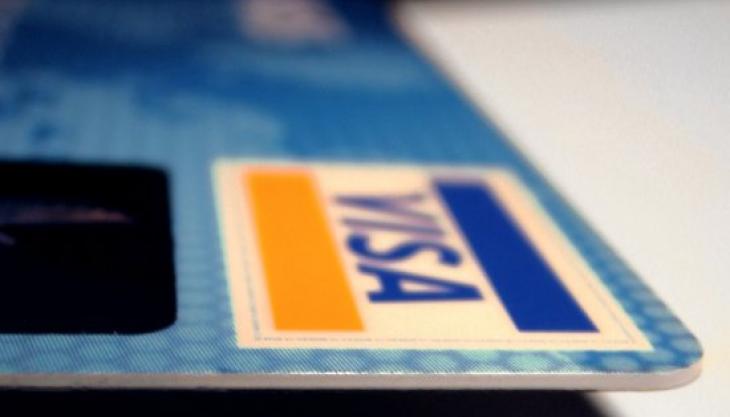New Report Says Consumer Credit Card Debt at Dangerous Level – Are You Maxed Out and Need Help?
Submitted by Rachel R on Thu, 12/17/2015 - 9:57am

New credit card study shows signs of impending crisis
Image Source: MorgueFile
Credit cards can be very helpful to your finances in many ways. The problem with credit cards is they can go from being an excellent tool to boost your credit score and help you balance your budget – to the instrument of financial ruin. And it doesn’t take long to move from the good end of the financial spectrum to the bad. A new study by CardHub shows that many consumers are already in over their heads with credit cards and the trend is worsening every day. Are you maxed out and worried about your credit card debt? Here’s what you need to know.
CardHub Report Indicates a Credit Card Crisis is Looming
CardHub’s 2015 Credit Card Debt study shows a shocking rise in consumer credit card debt and, if the trend continues as they’ve predicted, will have sweeping consequences for consumers individually and the economy as a whole. Here’s a quick rundown of just a few of their findings:
- More than $21.3 billion of credit card debt was added in the 3rd quarter of 2015 (July, August, September) and 4th quarter 2015 will be even higher given the holiday shopping season
- Compared to 3rd quarter 2014, there has been a 34% increase
- Compared to 3rd quarter 2013, the increase is a whopping 76%
- 2015 started strong with consumers paying down nearly $35 billion in credit card debt, but all that progress has been lost
- CardHub's experts predict the total new growth in credit card debt over 2015 will exceed $68.5 billion
- On a household level, that’s an average of $8,000 – the highest level of debt since the recession
The debt experts at CardHub consider this amount of household debt a “tipping point” that will lead to delinquencies, an increase in debt collections, charge-offs, and unmanageable financial circumstances for many households.
The Best Use of Credit Cards is Little Use At All
Credit cards should never be used as a substitute for cash, if at all possible. This means that if you can’t afford to pay cash for an item, you shouldn’t charge it. Every time you swipe your card and can’t pay the account off in full at the end of the month, you are taking out a loan. Credit card interest rates can vary widely, and what seems like a must-have item for $100 can end up costing you hundreds more by the time interest is tacked onto the amount.
The best use of credit cards it to use them sparingly - only enough to keep the accounts open and encourage the card issuer to keep your credit limit as high as possible. It may seem counter-intuitive to have credit cards in your wallet and not use them, but that’s the best way to keep your credit score high, revolving credit utilization low, and avoid interest charges and other credit consequences. Your total credit utilization should never go over 30% of your total available credit.
But even with that in mind, carrying a balance month to month is not good money management since you’ll end up paying interest. And if you run late on a payment, there’s a fee for that. And if you ever exceed your limit, there’s another fee for that. Credit cards can spiral out of control quickly and wreck your finances. The good news is, even if you have gotten in over your head with debt, there are options available to you.
How Chapter 7 and Chapter 13 Help With Credit Card Debt
If you’re in a mess with your credit cards, can only afford to pay minimum payments, have maxed out your cards, and are dealing with collections calls from creditors, bankruptcy may be a solution to consider. If you’re only a couple of thousand dollars in debt, you’re likely better off working out a payment arrangement with your creditors.
But if you owe tens of thousands of dollars in credit card debt, also have unpaid medical bills lingering, and are falling behind on other bills because of unwieldy, debt Chapter 7 or Chapter 13 bankruptcy may be a fit solution. With Chapter 7, most unsecured debts are wiped out completely and with Chapter 13, you get time to catch up on your car loan or mortgage plus pay less than you owe on unsecured debts.
To find out how you can be debt free in 2016, contact the Law Offices of John T. Orcutt. Call +1-833-627-0115 for a free consultation at one of our convenient locations in Raleigh, Durham, Fayetteville, Wilson, Greensboro or Wilmington.
References:
Debts Hurt! Got debt? Need help? Get started below!
Serving All of North Carolina
- Bankruptcy Attorneys Raleigh NC (North)
- Bankruptcy Attorney Fayetteville NC
- Bankruptcy Attorney Durham NC
- Bankruptcy Attorneys Wilson NC
- Bankruptcy Attorneys Greensboro NC
- Bankruptcy Attorneys Southport NC
- Bankruptcy Attorneys Wilmington NC
Bankruptcy Attorneys Raleigh NC (North)
6616 Six Forks Rd #203 Raleigh, NC 27615 North Carolina
Tel: (919) 847-9750

Bankruptcy Attorney Fayetteville NC
2711 Breezewood Ave Fayetteville, NC 28303 North Carolina
Tel: (910) 323-2972

Bankruptcy Attorney Durham NC
1738 Hillandale Rd Suite D Durham, NC 27705 North Carolina
Tel: (919) 286-1695


Bankruptcy Attorneys Greensboro NC
2100 W Cornwallis Dr. STE O Greensboro, NC 27408 North Carolina
Tel: (336) 542-5993

Bankruptcy Attorneys Southport NC
116 N Howe St. Suite A Southport, NC 28461 North Carolina
Tel: (910) 218-8682

Bankruptcy Attorneys Wilmington NC
116 N. Howe Street, Suite A Southport, NC 28461 North Carolina
Tel: (910) 447-2987
